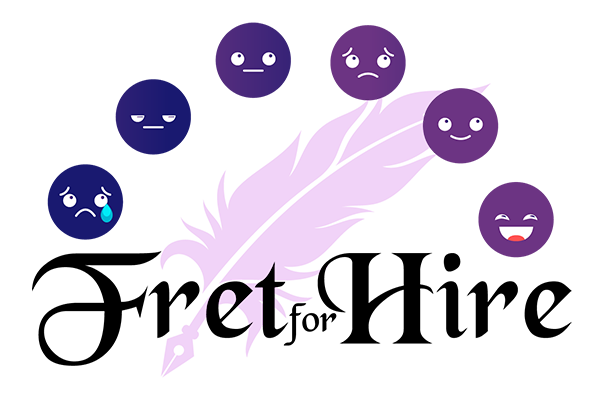All, Parkinson's Disease
Neuro Normal…
On a crisp November morning, an esteemed neurologist confirms what I already know. “It’s Parkinson’s Disease.”
“Could it be anything else?”
“No. You have PD. But I have patients who are in their eighties and nineties – and I know that you’ll be one of those too.”
Learning that one has a neurodegenerative disease is not the greatest start to a Thursday. But there is still a day to be had – so I have it. I return phone calls on the drive home. And then tell my husband who is waiting for me.
It is his worst day. Within hours he has us living in the wreckage of our future. We will sell our home and move into a single-story abode. The DMV will yank my license and my body will betray me completely. Likely within days.
“Will I lose my license?” I text my friend who, conveniently enough, is a neurologist as well as a responsive texter.
“You know those ancient grandmothers you see on the road? If they can drive, so can you. Besides, driving is a gross motor skill.”
“Just my driving?”
“PD impacts your fine motor skills…”
Finally, my lack of grace and coordination pays off. “Well, you can’t miss what you’ve never had.”
Four plus years on I’m still driving – safely, cautiously and incident-free, thank you very much. And no, scraping someone’s car door in the school parking lot is not an accident – it’s a mishap. It is not an accident. An embarrassing, and painfully expensive, fucking mishap but a mishap nonetheless. It is not an accident. I’m okay in this new neuro ‘normal’. Really. I am okay.
And you, all of you dealing with a medical curveball, you will be too. It’s a disease, a condition, it is now a part of who you are and how you will live. It is now part of your daily routine. Give yourself a minute or two to adjust to the new normal.
When a woman with whom I’m friendly is diagnosed with PD, she reaches out. Disease makes friends out of acquaintances. The diagnosis sucks for them. It sucks for their families. It even sucks for new friends like me: bad things are not supposed to happen to good people.
“Do not tell people of your new normal in front of your children,” I advise the newly diagnosed Parkie. “I don’t care how old your children are. Tell people without them.”
“Why?” she asks.
“Because people are good and people are caring–and people are scared. For you. And for themselves too. Sometimes this mixed bag of emotion makes the newly informed react … awkwardly.”
“What do you mean?”
“I told someone in front of my kid and they gasped.”
“That’s not bad.”
“But it nullified my efforts to soft-pedal the diagnosis to my then eight-year-old.”
“Oh.”
My thin veneer of tact is fading. “People say or do stupid shit that might freak out your kid.”
“Or freak me out.”
“Or make you laugh. Someone once told me, with surprise in her voice: ‘It hasn’t affected your intellect at all.’ ‘At least not yet’ was my response.’”
The chronically afflicted must embrace dark humor. We simply must. The new neuro normal is idiopathic, its surprises mostly awkward and often embarrassing. Laughter is an essential weapon.
And you need a female Parkie Posse with whom to laugh darkly. To share the good times… of a shuffling gate, martinis shaken then spilled. You need a posse of Twitchy Women. Women are better at understanding and dealing with chronic conditions. We menstruate, some of us give birth – our very biology requires that we deal with these hassles again and again. And again. That’s true of all women, not just those with PD. Men think up notions and form committees on committees – women actually deal with the redundancy run amok.
“You look steady today,” an acquaintance says when I run into her at Starbucks. I think she’s trying to be funny. Maybe it’s even a compliment. Regardless, the line bombs.
I’m allowed to make fun of my condition. Until I do so, you’re not allowed. It’s like the use of the “N” word. Black people actually get to say it. I don’t. And shouldn’t.
Try not to take offense. Most of the time it’s people’s fear saying the dumb stuff. They’re scared for you, your future – and for themselves. Most of us mean well, all of us stumble.
And people do say the darndest things:
“Aren’t there any drugs besides Levodopa?” asks a general practitioner friend of mine “I mean, that’s been around since the time of Methuselah.” Her frustration at her profession and for me are palpable. And well meaning – if bordering on tactless. But that’s okay. You must learn to hear the love behind people’s words. And their fears.
I am at a pre-operation office visit: “Don’t be nervous,” whispers the nurse. “It’s just an EKG.”
Electronic medical records are useless unless they’re read. “I’m not nervous,” I whisper back. “I have Parkinson’s Disease.” She conducts the rest of the test in silence.
Now I’m at Valet Parking after a swanky ‘Ladies Lunch”: “How come you don’t have a Disabled Parking placard?” asks the well-meaning attendant. “It would make things so much easier.”
Ah, the random helpful stranger. The one who understands – only he doesn’t. I have a tremor and occasionally a lazy gait due to the Parkinson’s Shuffle – and a wonky knee that is a separate issue. And no doctor would even consider giving me a disabled parking placard. Exercise is an essential part of every Parkie protocol. A body in motion – loses its ability to remain in motion more slowly.
And then there are total strangers who do get it:
“Are you cold?” asks the Bristol Farms cashier who rings me up one chilly evening.
“I have Parkinson’s.”
“Oh, I’m sorry about that.”
Kindness always counts. Whether gracious or awkward, acknowledge and embrace it. Kindness always counts in all its presentations.
Bad things happen to good people. And good things happen to bad people. That’s just life on this mortal coil of ours.
Most people die with PD, not from it. I’m going to be okay. Not as okay as I was but I’m adjusting to the new neuro normal. And you too will be okay.
Repeat that, please: “I’m okay. I’m above ground. I can move. The sun will rise. And so will I.”
You will. I have. You’ll go through the chronic condition door to a new place. And you’ll get used to that new place, overcome the fear, and make the best of the life yet to live.
I promise.


Excellent perspective you’ve given to us. And great read as usual.
I don’t have PD but several autoimmune illnesses and mold /Lyme toxicity. Your perspective of getting used to the “new normal” was powerful for me. I think that’s what it is for us all- we just face different challenges in life…. many of which become our new normal. and our resiliency helps us move forward and adjust. Thank you for a great article.
Thank you for taking the time to read and comment. Honored.